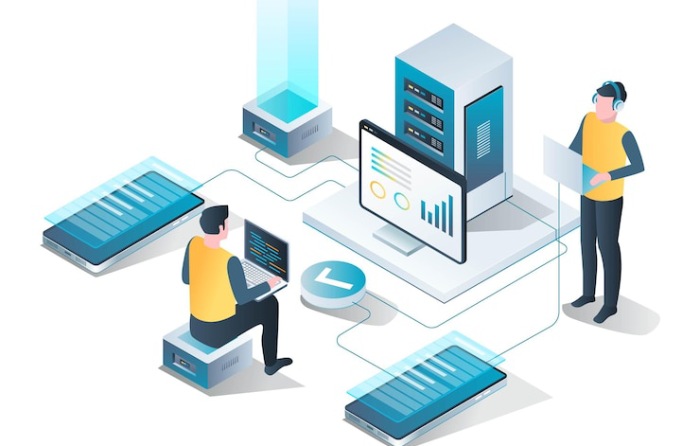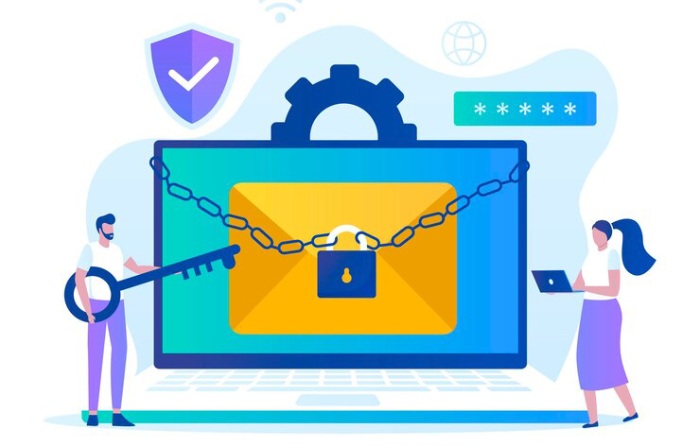One outcome of the COVID-19 Pandemic is that it sped up digital transformation across all sectors by five to seven years. This scenario brings with it new opportunities but also presents fresh challenges that need to be met. For instance, organizations now have to deal with a more complex and distributed IT environment. The result is a predictable increase in the reliance on managed services, meaning more opportunities for MSPs.
However, MSP partner program need to adopt new strategies to make full use of the situation. By analyzing the situation and acting proactively, they can empower their partners to survive and thrive even after the crisis. MSPs should note how managed service examples like remote server management are declining in demand while others are rising. Steps must be taken accordingly by the managed service provider: examples include relying more on metrics to guide critical decisions. Seven ways MSPs have to evolve in the era of digital transformation are detailed below.
Seven Ways Managed Service Offerings Providers Can Capitalize On Digital Transformation
Here are the Seven ways MSPs can Capitalize on Booming Digital Transformation.
Automate Vendor Security
A recent survey by the Ponemon Institute found that more than 53% of organizations had suffered from data breaches caused by third parties. These third-party incidents cost around $4.29 million on average: $370,000 more than usual due to hidden costs like those associated with changing a vendor.
MSPs should move away from manual privacy and security risk assessments towards automated, proactive, and platform-centric software-based solutions and questionnaires to determine the risk score of their vendors. Such checks can be run regularly and protect both an organization and its client.
Counter Pandemic Enhanced Insider Threats
34% of organizations are victims of insider attacks, and the number of incidents has increased over two years. Ponemon finds the cost of such breaches at $755,760 per breach. COVID has led to organizations elevating the privileges of employees in ways that may not be appropriate.
MSPs must re-examine the privileges of employees and invest resources into tools such as behavioral profiles and analytics for combating insider threats. Steps like two-person authentication for access to certain information or financials may also be necessary. Such actions must always be balanced to maintain a conducive atmosphere of trust.
Rely On Metrics Over Intuition
In the sphere of managed services, managing using metrics guarantees success. Doing so requires measuring both activities and results. Managing by metrics also allows organizations to make decisions based on facts rather than unreliable intuition.
Metrics allow MSPs to understand how profitable a particular client is and charge them appropriately. Apart from revenue, organizations should also measure the following:
- Time spent on handling tickets.
- Frequency of backup failure in a quarter.
- The number of times a particular employee of a client calls the helpdesk.
Cover All Platforms To Win
All remotely managed IT infrastructure falls under the managed services definition. However, MSPs looking to capitalize on future digital transformation should prioritize what they focus on. For instance, on-premise servers are on the decline. Many types of managed service providers rely primarily on remote server management, and these will have to adapt accordingly. Doing so involves understanding how clients are transitioning and allocating resources accordingly.
The current rate of new application workload deployment is favorable on the cloud. However, systems like edge computing should also not be ignored. IT environments are becoming more distributed with time, and this increases opportunities for MSPs. MSPs should thus cover all types of managed services to win.
Outsource And Use DevOps
MSPs must optimize their recruitment strategies to adequately cater to the significantly increased demands caused by digital transformation. Hiring agencies can provide them with specialist staff so they can concentrate on customers and needs.
Rapid turnarounds are also a necessity in the modern world. MSPs should thus adopt a DevOps approach to their software development needs and benefit from it. Hiring a DevOps engineer will allow MSPs to deploy software rapidly and thus enhance the client experience.
Adopt Integrated Skill Sets And Management
The move to a cloud-first mentality by enterprise clients will mainly be composed of SaaS and other similar cloud-based solutions. MSPs need to continue their skill development in managing automation, integration, Information technology monitoring, migration, management tools, and distributed architecture.
Developing such skillsets in an ongoing manner will allow enterprises to manage integration points and the data flow between on-premise and private cloud hosting environments, SaaS partners and customers, and public cloud.
Enhance Skills Related To Cloud Migration
The cloud has now reached such a point of maturity that even corporations such as AWS and Google Cloud Platform are putting mission-critical applications on it. As such, public cloud capabilities are more critical than ever before.
MSPs should train their skillsets to carry out all services related to the cloud for their clients, including delivery, migration, and management. Several organizations do not have a strategy related to public cloud technology adoption. MSPs can assume the role of technology partners to assist such organizations in deploying a cloud strategy.
Final Words
As this managed service offering ppt shows, the benefits provided by MSPs are critical for enabling their clients to adapt to the post-pandemic era. To do so, MSPs must first enhance their skills and abilities. Data-oriented metrics will allow them to make better decisions that will increase profitability and conserve critical resources. Moreover, skills related to cloud migration should also not be neglected to cater to pressing needs. Email security remains an essential component as always and is even more critical now that cybercriminals have increased their malicious activities. Outsourcing and DevOps can enable MSPs to leverage talent and deploy software rapidly for clients. Finally, MSPs should cover all platforms to guarantee success.


